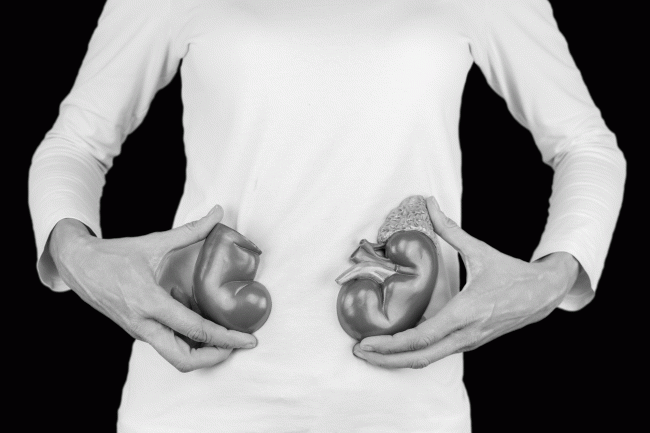Archives
Stay up-to-date and on top of your health with our e-Newsletter and receive updates on current treatments and vital health issues.
Let’s Not Kid About Our Kidneys

The importance of our kidneys is such that nature gave us two! Without a functioning kidney, and in the absence of dialysis, we would survive but a few days. The limelight tends to shine on many of our other organs such as the heart, brain, bowels, eyes and bones, but the humble kidney is often ignored.
So, what is it about the kidneys that makes them so special?
Kidneys serve several purposes, namely:
- They filter and clean our blood, eliminating harmful toxins and by-products of metabolism; each day an average adult kidney will filter approximately 200 litres of blood, releasing unwanted chemicals or waste into the urine, thereby preventing toxic accumulation in our body which would otherwise cause harmful consequences including death.
- Water balance; the Kidneys remove excess fluid from the blood, producing urine, which flows to the bladder.
- Blood pressure control; the kidneys help to maintain a regular blood pressure
- Vitamin D activation; the kidneys are involved in vitamin D production which is essential for strong bones, muscles and overall health
- Red blood cell production; the kidneys produce a naturally occurring hormone, called erythropoietin, which is critical for red blood cell regeneration , without which oxygen could not be transported around the body due to the anaemia that ensues.
Chronic kidney disease is called the ‘silent disease’ as there are often no warning signs. Of great concern is that symptoms will usually not develop until kidney function has declined by approximately 90% or more. This is why early detection of kidney impairment through regular screening and check ups is vital , as early intervention can slow or halt the progression of the disease, preventing end stage complications, a poor quality of life and premature death.
Signs that may point to a kidney problem include: Urinary symptoms (changes in the volume and frequency of urination, or the appearance of blood in the urine), high blood pressure, swollen ankles, tiredness, loss of appetite, lack of concentration, itching, shortness of breath, nausea and vomiting, muscle cramps, pins and needles in the fingers or toes.
How to best take care of our kidneys?
- Blood pressure checks – poorly controlled high blood pressure can be a cause of kidney disease but high blood pressure can also be a consequence of poorly functioning kidneys. Therefore, regular blood pressure checks and good blood pressure control can help in the prevention of disease, as well as help in the early detection of kidney issues.
- Blood sugar – Along with elevated blood pressure, diabetes is one of the leading causing of kidney disease. If you have diabetes, close monitoring of blood glucose levels and maintaining stable blood sugar within target range, can have a very positive impact on the prevention of disease.
- Maintain a healthy weight and active lifestyle
- Smoking cessation and moderation of alcohol intake
- Regular blood and urine screening tests arranged by your doctor.
1 in 3 people are at risk of kidney disease. To find out more about your risk of kidney disease take the risk test at https://kidney.org.au/kidneyrisktest and discuss your kidney health with your doctor.